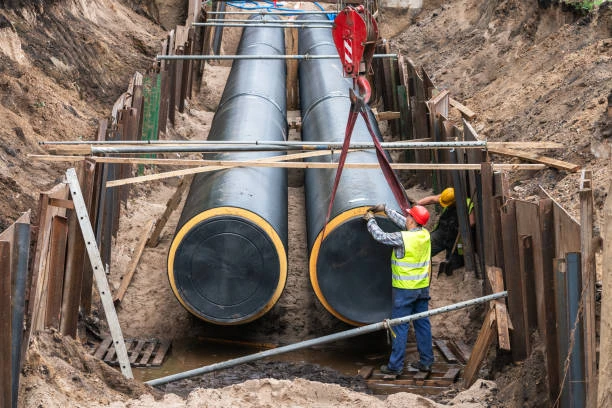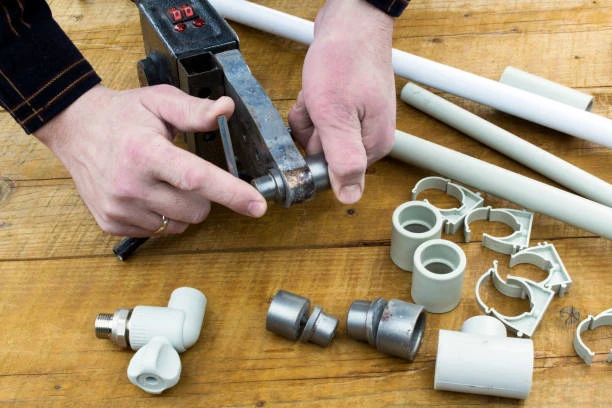Introduction
In recent years, the global focus on sustainability and efficient resource management has opened doors for innovative entrepreneurs. One such success story comes from South Africa, where a visionary entrepreneur identified a significant opportunity in plastic pipes. This article explores the journey of this entrepreneur, the challenges they faced, and how their venture is making a positive impact on the environment and the local economy.
The Rise of Plastic Pipes in South Africa
Understanding the Market
Plastic pipes have become increasingly popular due to their lightweight nature, resistance to corrosion, and ease of installation. In South Africa, the demand for plastic pipes is rising, driven by various sectors, including construction, agriculture, and water management. The shift from traditional materials like metal and concrete to plastic reflects a broader trend toward sustainability and efficiency.
Industry Challenges
Despite their advantages, the plastic pipe industry in South Africa faces challenges such as:
- Environmental Concerns: Plastic pollution and waste management remain significant issues, prompting calls for sustainable practices.
- Market Competition: The industry is competitive, with both local and international players vying for market share.
- Regulatory Hurdles: Compliance with environmental regulations can be complex and may pose obstacles for new entrants.
Meet the Entrepreneur: Profile of a Visionary
Background and Inspiration
The entrepreneur at the center of this success story grew up in a modest environment, where they witnessed firsthand the challenges of inadequate infrastructure and limited access to resources. Inspired by a desire to improve living conditions in their community, they pursued a degree in engineering, with a focus on sustainable practices.
Identifying the Opportunity
After gaining experience in the construction industry, the entrepreneur recognized a gap in the market for high-quality plastic pipes that could address both the infrastructure needs and environmental concerns in South Africa. They saw an opportunity to innovate by creating products that were not only efficient but also sustainable.
The Journey of Building a Opportunity in Plastic Pipes Business
Starting from Scratch
With limited capital but a wealth of determination, the entrepreneur began their journey by:
- Conducting Market Research: Understanding customer needs and preferences was crucial. They conducted surveys and engaged with potential clients to gather insights.
- Formulating a Business Plan: A solid business plan outlined their vision, objectives, and strategies for entering the market, including a focus on sustainability.
- Securing Funding: The entrepreneur approached various funding sources, including local investors and government grants aimed at promoting small businesses in South Africa.
Overcoming Challenges
The path to success was not without obstacles. Some of the significant challenges included:
- Technical Issues: Developing a reliable manufacturing process for high-quality plastic pipes required extensive research and collaboration with experts in materials science.
- Market Entry: Competing against established players in the market meant the entrepreneur had to find a unique selling proposition (USP). They emphasized sustainability, durability, and cost-effectiveness in their marketing strategy.
- Building a Brand: Establishing a trusted brand in a competitive market took time. The entrepreneur focused on quality assurance and customer service to build relationships with clients.

Opportunity in Plastic Pipes Innovations and Sustainable Practices
Eco-Friendly Materials
One of the standout features of this entrepreneur’s product line is the use of recycled materials. By sourcing recycled plastics, they not only reduced waste but also created a circular economy within the industry. This commitment to sustainability resonates with environmentally conscious consumers and businesses.
Energy-Efficient Manufacturing
The entrepreneur invested in energy-efficient manufacturing technologies that minimize carbon emissions. This commitment to reducing their ecological footprint further strengthens their brand’s appeal and aligns with global sustainability goals.
Community Engagement
Understanding the importance of community, the entrepreneur initiated programs that provide training and employment opportunities for local residents. By fostering skill development, they are contributing to the economic empowerment of their community.
The Impact on the Opportunity in Plastic Pipes Local Economy
Job Creation
The establishment of the plastic pipe manufacturing business has led to the creation of numerous jobs in the region. From production to sales, many locals now have stable employment opportunities that contribute to their families’ well-being.
Infrastructure Development
With the availability of high-quality plastic pipes, local infrastructure projects have gained momentum. The entrepreneur’s products have been used in various applications, including water supply, irrigation systems, and sewage management, leading to improved living conditions in underserved areas.
Driving Innovation
The success of this venture has inspired other entrepreneurs to explore sustainable business practices. The entrepreneur often shares their journey through workshops and mentorship programs, fostering a culture of innovation in the region.
Opportunity in Plastic Pipes Future Prospects
Expansion Plans
With a solid foundation established, the entrepreneur is now focusing on expanding their product range and exploring export opportunities. By tapping into international markets, they aim to scale their operations and contribute further to the South African economy.
Continued Commitment to Sustainability
As environmental concerns continue to grow, the entrepreneur is dedicated to staying at the forefront of sustainable practices. They are investing in research and development to create even more eco-friendly products, ensuring their business aligns with the evolving needs of the market.
Opportunity in Plastic Pipes Conclusion
The story of the South African entrepreneur who found opportunity in plastic pipes is a testament to the power of innovation, resilience, and community engagement. By addressing market needs with sustainable solutions, they have not only built a successful business but also contributed positively to their community and the environment. Their journey serves as an inspiration for future entrepreneurs aiming to make a difference in their industries.
Opportunity in Plastic Pipes FAQs
1. What types of plastic pipes are commonly used in South Africa?
Common types include PVC, HDPE (high-density polyethylene), and PP (polypropylene), each suited for various applications like plumbing, irrigation, and drainage.
2. How do plastic pipes compare to traditional materials?
Plastic pipes are generally lighter, more resistant to corrosion, and easier to install than traditional materials like metal and concrete, leading to reduced labor costs.
3. What are the environmental benefits of using recycled plastics for pipes?
Using recycled plastics reduces waste, lowers the demand for new raw materials, and minimizes the environmental impact associated with production.
4. How has the entrepreneur contributed to the local community?
The entrepreneur has created jobs, provided training opportunities, and engaged in community development projects, improving overall living conditions.
5. What future plans does the entrepreneur have for their business?
The entrepreneur aims to expand their product range, explore export markets, and continue investing in sustainable practices and technologies.


















